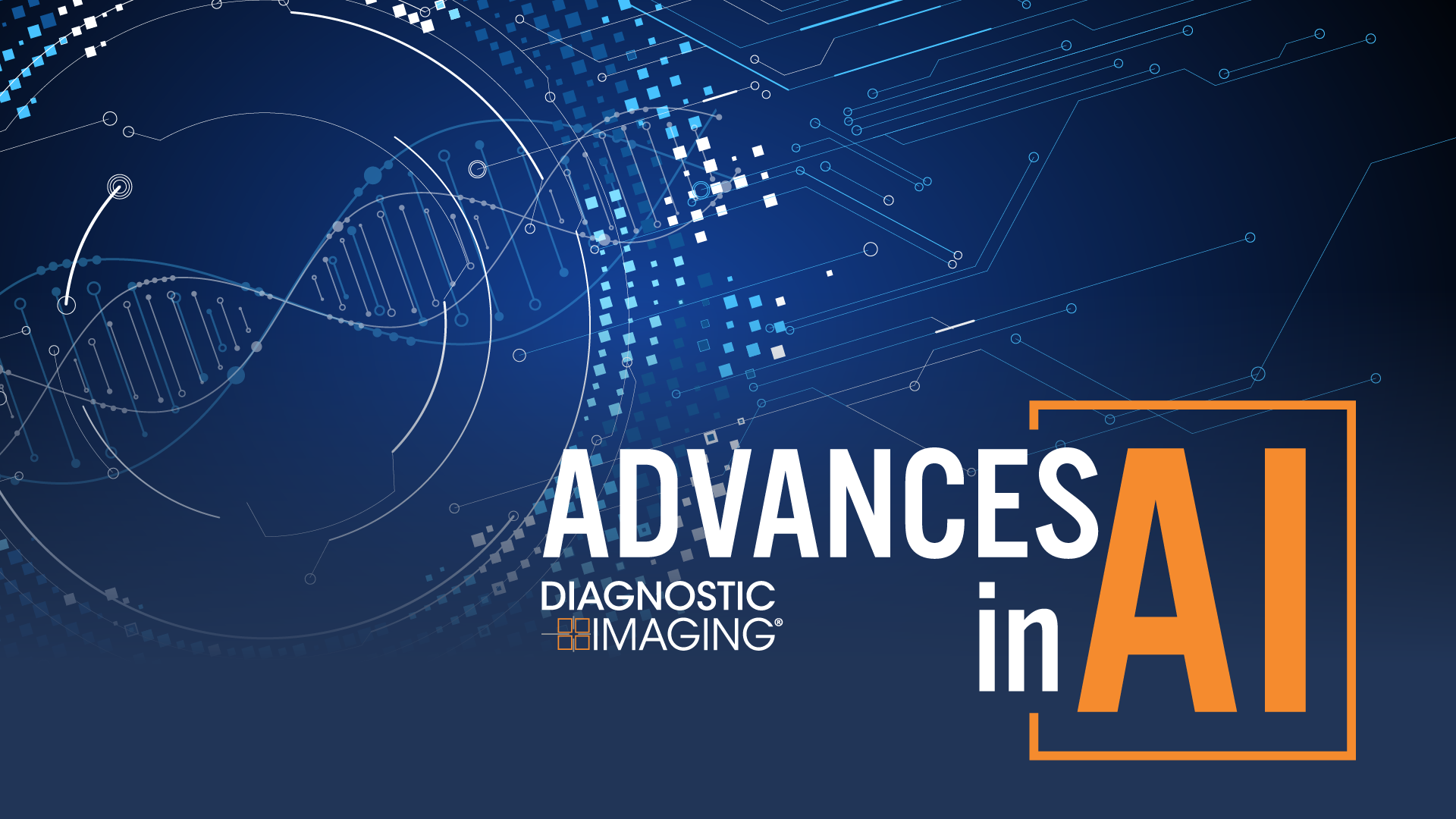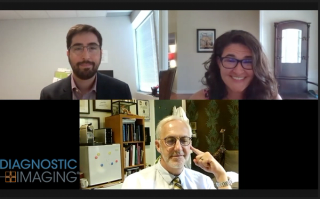
Cardiac CT
Latest News

In recent interviews, Eric Rohren, M.D., and Krishna Nallamshetty, M.D., discuss the potential of abdominal aortic aneurysms (AAAs) to progress into life-threatening consequences and an emerging AI-powered tool that may bolster adherence to best practice recommendations in radiology reporting of incidental AAA findings on CT and MRI.
Latest Videos
CME Content
More News
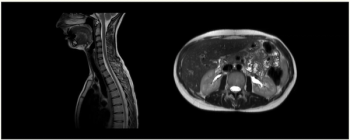
The Ezra Blueprint scan reportedly includes quantitative brain measurements, coronary calcium scoring (CAC) and a full-body MRI that provides screening for over 500 conditions.
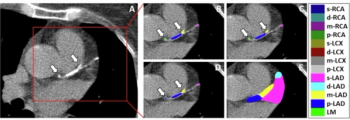
For segment-level coronary artery calcium (CAC) scoring, a deep learning model had an accuracy rate of 73 percent for assigning calcifications to coronary artery segments and achieved a micro-average specificity of 97.8 percent.

Catch up on the top radiology content of the past week.
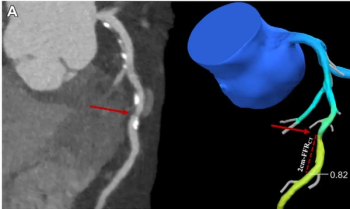
In nearly 5,300 patients with suspected coronary artery disease (CAD), adjunctive use of CT-based fractional flow reserve software significantly reduced the 90-day invasive coronary angiography (ICA) rate in comparison to unassisted use of coronary computed tomography angiography (CCTA).
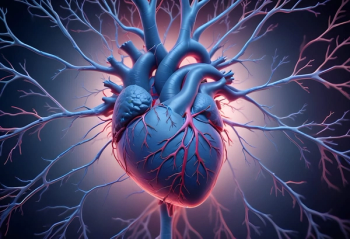
Four Medicare administrative contractors (MACs) will provide coverage of AI-enabled coronary plaque analysis and quantitative coronary tomography assessment of coronary computed tomography angiography (CCTA) for Medicare beneficiaries starting in November 2024.

Catch up on the top radiology content of the past week.

Researchers found that ultra-high resolution photon-counting significantly enhanced visualization of small vessels and facilitated improved reduction of blooming artifacts for head and neck computed tomography angiography (CTA) scans.
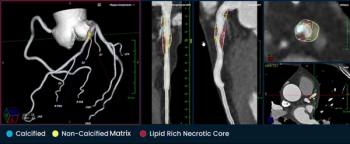
Through analysis of coronary computed tomography angiography (CCTA) images, the PlaqueIQ software provides quantification and classification of atherosclerosis, a common cause of myocardial infarction (MI) and ischemic stroke.

Catch up on the top AI-related news and research in radiology over the past month.

Catch up on the top radiology content of the past week.
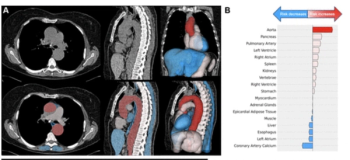
Emphasizing multi-structure segmentation and feature extraction from chest CT scans, an emerging AI model demonstrated an approximately 70 percent AUC for predicting significant incidental extrapulmonary findings as well as two-year and 10-year all-cause mortality.

Catch up on the top radiology content of the past week.
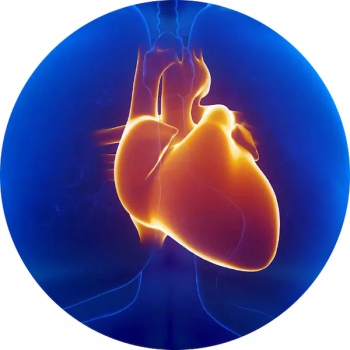
Key features of the HealthCCSng V2.0 software include numerical coronary artery calcium (CAC) scoring, a new zero CAC category and user customization of upper and lower limits for CAC scoring categories.
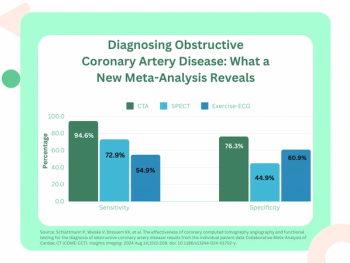
For patients with stable chest pain, CT angiography demonstrated a nearly 40 percent higher sensitivity rate than exercise electrocardiography and over an 18 percent higher sensitivity rate than SPECT for detecting obstructive coronary artery disease (CAD).
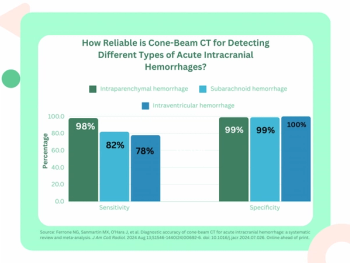
While cone-beam computed tomography (CBCT) demonstrated high pooled sensitivity and specificity rates for intraparenchymal hemorrhage in the systematic review, researchers noted higher false-negative rates for subarachnoid and intraventricular hemorrhages.

Catch up on the top radiology content of the past week.
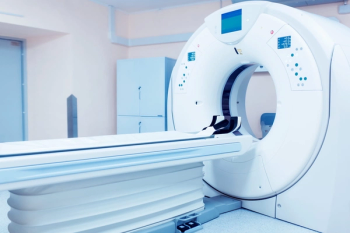
Automated CT-derived assessments may provide stronger stratification of diabetes and cardiometabolic risks than conventional predictive models, according to a new study of over 32,000 adults in Korea.
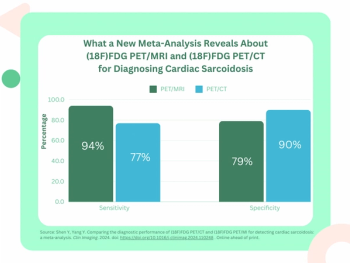
The researchers found that (18F)FDG PET/MRI had a 17 percent higher pooled sensitivity rate for cardiac sarcoidosis in contrast to (18F)FDG PET/CT.
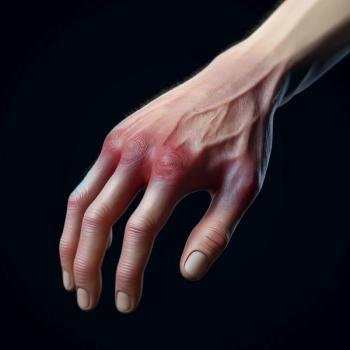
While contrast media extravasation is a rare complication, there can be varying degrees of severity. Accordingly, this author reviews possible causes of this complication, prevention principles and pertinent considerations in addressing this complication when it does occur.
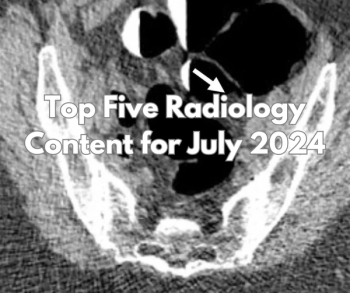
Catch up on the most-well viewed radiology content in July 2024.

Catch up on the top radiology content of the past week.
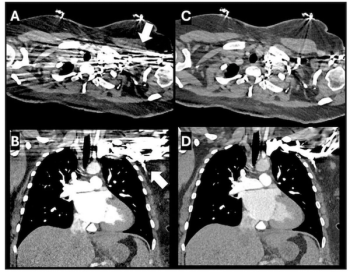
New research looking at photon-counting computed tomography (PCCT) demonstrated significantly reduced variation and tracheal air density attenuation with polyenergetic reconstruction in contrast to monoenergetic reconstruction on chest CT.

Catch up on the top radiology content of the past week.
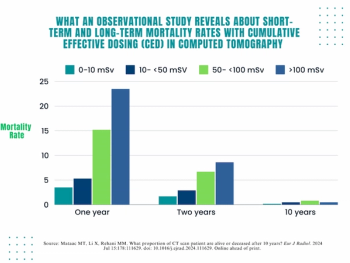
Emerging research suggests CT radiation dosing of 50 mSv or greater is associated with higher mortality at two years but nearly half of those patients were alive 10 years later.
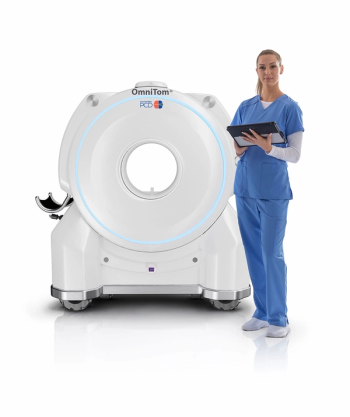
Photon-counting CT-optimized features with the OmniTom Elite system include 30 cm field of view scanning, continuous spiral scanning, and an ultra-high-resolution capability of 0.141 mm resolution.




